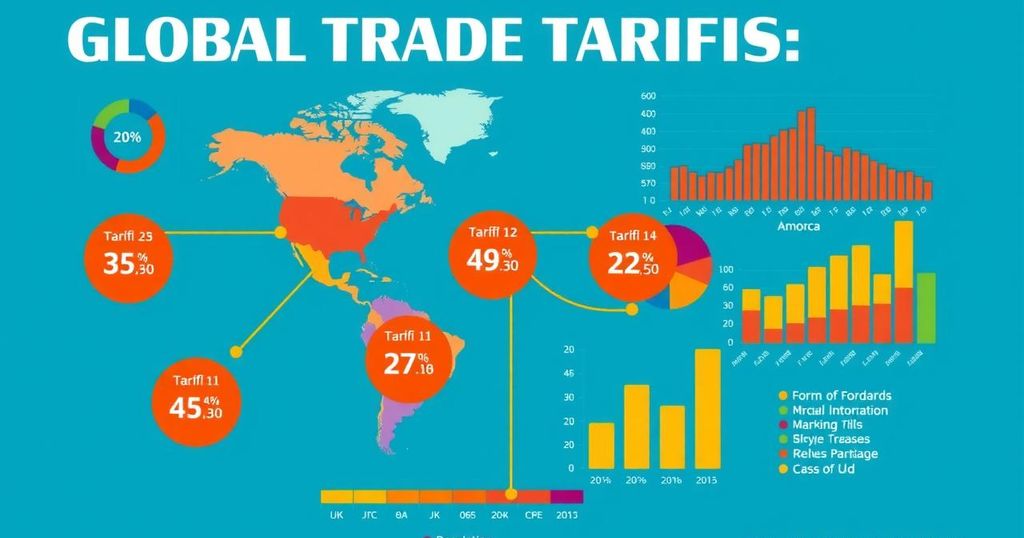Mlungisi Makhanya, leader of Eswatini’s main opposition party, is in critical condition after being allegedly poisoned in an assassination attempt. The claim has been denied by government officials, who state there is no evidence supporting the allegation. Eswatini’s political climate, characterized by a lack of democratic participation and historical violence against dissent, presents a concerning backdrop to this incident.
The leader of Eswatini’s principal opposition party, Mlungisi Makhanya, is currently in a critical yet stable condition following an alleged poisoning incident, which his allies are claiming to be an assassination attempt. Makhanya was hospitalized in South Africa after the incident, which reportedly took place at his residence in Pretoria where he had been living in exile from Eswatini, one of the few remaining absolute monarchies in Africa. According to Penuel Malinga, secretary general of the People’s United Democratic Movement (Pudemo), the poisoning was a deliberate act by the Eswatini state. In response, Alpheous Nxumalo, a spokesperson for the Eswatini government, denied these allegations, asserting that the government does not engage in the assassination or poisoning of political opposition. He further stated that Makhanya was not wanted in Eswatini and characterized the claims against the government as being devoid of evidence. King Mswati III has ruled Eswatini since 1986, maintaining his authority through decree, with political parties barred from electoral participation. His rule has faced numerous criticisms, particularly regarding his opulent lifestyle juxtaposed against the widespread poverty experienced by many citizens. Mr. Malinga revealed that Makhanya had ingested poisoned food and was confined to his bedroom by an unidentified cook, stating that individuals who responded to his distress call had to forcibly gain entry. Currently, Makhanya is unable to speak; however, medical professionals predict a recovery period of approximately two weeks. The South African police have yet to issue a statement concerning the incident. This incident recalls the tragic murder of Thulani Maseko, a human rights attorney and fellow member of Pudemo, who was shot at his home in Eswatini last year. The government’s commitment to investigate his death has yet to yield any results or bring the assailants to justice. Just hours before Maseko’s assassination, the king remarked that activists were the instigators of violence, advocating that those affected should not lament their circumstances. Human Rights Watch has reported that at least 46 individuals lost their lives at the hands of security forces during pro-democracy protests in 2021.
The political landscape in Eswatini has been largely dominated by King Mswati III, who has held power for over three decades. His absolute control over the country’s political environment, coupled with a ban on political parties in elections, has led to significant discontent among opposition groups. The current situation has escalated tensions between the government and opposition leaders, especially those advocating for democratic reforms. Allegations of political violence, such as poisoning and assassinations, raise concerns about the safety of opposition figures and the state of human rights in Eswatini. Previous incidents, including the unsolved murder of rights lawyer Thulani Maseko, further underline the risks faced by those opposing the monarchy’s rule. Human Rights Watch has documented severe responses to pro-democracy protests in Eswatini, highlighting a troubling pattern of violence against dissenters. This context frames the troubling incident involving Mlungisi Makhanya, suggesting a systemic climate of fear and retribution against political opponents.
The critical condition of Mlungisi Makhanya following the alleged poisoning incident has spotlighted the perilous environment for opposition leaders in Eswatini. The accusations made by his party regarding a state-sanctioned assassination attempt juxtapose sharply with government denials of any such involvement. Given the history of politically motivated violence in Eswatini, these developments warrant close scrutiny as the country continues to grapple with significant human rights issues and calls for democratic reforms. The judicial response to such incidents remains crucial in determining the trajectory of political stability and the protection of human rights in the region.
Original Source: www.theguardian.com




